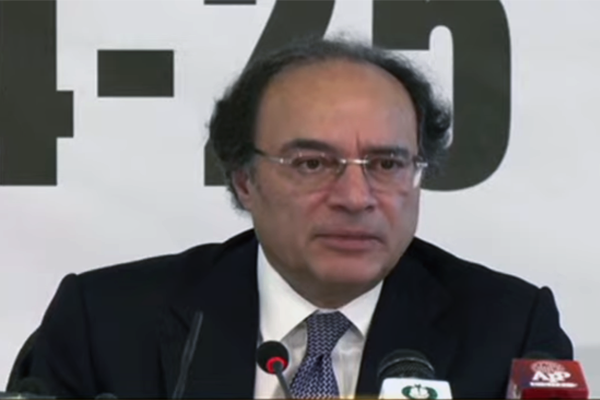
The recent completion of elections marks a significant milestone in Pakistan’s political landscape, paving the way for the imminent formation of a new government. Amidst the anticipation surrounding the upcoming administration, the nation finds itself grappling with profound economic turmoil. The aftermath of the elections instills a sense of optimism, with the populace hopeful for tangible improvements on the horizon. Foremost among the anticipated changes is the expectation of restored political stability under the stewardship of fresh leadership.
However, the foremost challenge that awaits the incoming government looms large: the daunting task of revitalizing the beleaguered economy. Over the past two years, Pakistan has been besieged by relentless political instability, which has exacted a heavy toll on its economic vitality. The ramifications of this instability have been far-reaching, leaving deep scars on various sectors of the economy and undermining investor confidence.
Consequently, the new government inherits a formidable mandate, to navigate the intricate interplay of political exigencies and economic imperatives. The path to economic recovery demands astute policymaking, robust fiscal management, and concerted efforts to instill confidence both domestically and internationally. It is imperative for the incoming leadership to prioritize economic revitalization as a linchpin of their governance agenda, recognizing that sustained progress in this realm is indispensable for fostering broader societal well-being and stability.
At the heart of any economy lies its revenue, with income serving as a pivotal component. In recent years, significant overhauls have been implemented within the Federal Board of Revenue (FBR) aimed at augmenting revenue streams. With the advent of a new government, there emerges a palpable aspiration to amplify the nation’s revenue base. This aspiration stems from the government’s earnest endeavor to kick start novel initiatives promptly, thereby honoring the commitments made to the populace.
The impetus behind this drive for increased revenue is multifaceted. Firstly, bolstering revenue streams facilitates the financing of ambitious projects essential for national development. These projects, in turn, are instrumental in fulfilling the electoral pledges articulated by the governing party. Furthermore, a robust revenue framework not only underpins fiscal sustainability but also fortifies the government’s capacity to address pressing socio-economic needs.
The commitment to optimizing revenue collection underscores the government’s resolve to engender tangible progress and prosperity. Through strategic reforms and efficient administration, the administration aims to streamline revenue generation processes and curb leakages. By harnessing innovative methodologies and leveraging technological advancements, the government seeks to enhance the efficacy and transparency of revenue collection mechanisms.
Facing a daunting fiscal deficit of PKR 7.5 trillion at the outset of the budgetary process, against the backdrop of FBR revenues at PKR 9.4 trillion and total resources at approximately PKR 12.4 trillion, Pakistan grapples with substantial financial burdens, including debt repayments and NFC allocations consuming virtually all available resources. The forecast for next year’s debt servicing exceeds PKR 9 trillion, highlighting the depth of the debt trap, exacerbated by unproductive borrowing. Internally, there’s a push towards enhancing revenue through strategic reforms such as the privatization of state-owned enterprises (SOEs) and broadening the tax base, alongside curbing expenditures by optimizing government structure and launching initiatives like the sukuk market to finance development projects. Externally, managing a USD 24.6 billion payable, the necessity for IMF program renewal, and fostering investments through the Special Investment Facilitation Council (SIFC) are critical to stabilizing the macro-economic outlook. These efforts, coupled with substantial reforms in revenue generation and expenditure management, including the introduction of dollar sukuks and revising fiscal policies with the IMF, aim to navigate Pakistan through its economic challenges, striving for a balance between growth and fiscal responsibility.
Long-term Strategy for Incremental Revenue Growth
However, a significant hurdle looms on the horizon: the task of revenue collection is far from instantaneous. It necessitates the formulation of a comprehensive government policy and entails a protracted endeavor to revamp the FBR system and instigate substantive changes within it. The government must prioritize this imperative and craft a meticulous long-term strategy aimed at incrementally augmenting the revenue-to-GDP ratio by one percent annually.
Realizing this objective hinges upon the development and implementation of a coherent policy framework. Merely effecting sporadic alterations to the system is insufficient and could precipitate adverse consequences for the nation. Therefore, sustained commitment and meticulous planning are indispensable prerequisites for achieving meaningful progress in revenue enhancement. The efficacy of any reform initiative is contingent upon its endurance beyond transient shifts.
The envisioned trajectory entails a gradual but discernible enhancement in the GDP, reflective of sustained economic dynamism. Over a span of five years, a judiciously orchestrated strategy has the potential to catalyze a cumulative increase of 5% in the tax to GDP ratio. Such a transformative endeavor holds the promise of fortifying the economic foundation of the nation and fostering prosperity across diverse sectors.
The realization of these aspirations necessitates steadfast resolve and unwavering commitment on the part of the government. By embracing a forward-looking approach and instituting robust policy measures, Pakistan can chart a course towards enduring economic resilience and prosperity. This forthcoming achievement stands to be the crowning glory of the current administration. However, it remains an incontrovertible reality that the ongoing reforms may not yield immediate dividends for the present government.
Should the incoming government harbor intentions of alleviating the burdens borne by the populace, augmenting revenue emerges as the quintessential recourse. In order to effect tangible relief for the citizenry, the incumbent government must undertake a retrospective examination of its fiscal trajectory, pinpointing areas of misstep. Foremost among the remedial measures is the imperative to curtail governmental expenditure.
The crux of the matter lies in the judicious allocation of resources; wherein prudent fiscal management holds the key to assuaging the economic woes afflicting the populace. As the vanguard of public welfare, the government bears a solemn obligation to prioritize the alleviation of socioeconomic burdens. Through concerted efforts and astute stewardship, the government can herald a new era of prosperity, characterized by fiscal prudence and inclusive growth.
The foremost imperative confronting this government must entail the closure of financially hemorrhaging institutions and the rectification of erstwhile economic policies that siphon off tax revenues. Institutions that continue to bleed resources must be decisively shuttered to stem the hemorrhage of public funds. Failure to effectuate these crucial reforms risks relegating us to the same precarious position we found ourselves in merely a year ago. Hence, the incumbent government must pivot towards pragmatic, results-oriented decision-making, eschewing the pitfalls of political expediency.
Effecting substantive change demands a departure from the realm of mere political posturing to a realm where tangible actions hold sway. Such a paradigm shift necessitates unity and collaboration among political parties and the populace at large. Only through collective resolve can we surmount the myriad challenges that beset our nation’s economic landscape.
On the contrary, the current scenario presents a stark contrast: while we presently operate with around 60-65 ministries agaisnt the 17 mandated by the consituition. This proliferation of ministries not only contributes to unnecessary bureaucratic redundancy but also inflates government expenditures exponentially. Rectifying this administrative bloat constitutes a pivotal step towards fiscal prudence, as it curtails the need for a surplus of employees who draw substantial salaries.
Transferring surplus personnel from redundant ministries to other departments emerges as a pragmatic solution. By reallocating human resources, the government can streamline operations, optimize efficiency, and mitigate financial strain. Such a decision, while not devoid of logistical challenges, represents a feasible and essential course of action.
It bears emphasizing that the 18th Amendment has devolved authority over various departments to the provinces. Consequently, maintaining superfluous ministries at the federal level not only runs counter to the spirit of decentralization but also encroaches upon provincial autonomy. In light of this constitutional framework, it behooves the federal government to relinquish control over matters that rightfully fall within the purview of the provinces.
The ongoing conflict between the federal government and the provinces exacerbates various challenges, leading to a detrimental impact on governance efficiency and fiscal management. Provinces assert control over certain matters, resulting in bureaucratic friction and impeding progress on critical initiatives. Consequently, this discord not only escalates federal expenditures but also undermines the overall effectiveness of government operations. Moreover, it engenders a surge in operational costs, further straining financial resources.
Rather than relying solely on political consensus, the government ought to prioritize pragmatic measures aimed at curbing superfluous and extravagant expenditures. Streamlining government expenses is imperative to foster fiscal discipline and ensure optimal allocation of resources for the public good. By fostering fiscal prudence and accountability, the government can instill confidence among citizens and stakeholders while advancing the nation’s economic stability and growth agenda.
For instance, consider the provinces of Punjab, Khyber Pakhtunkhwa (KPK), or Sindh, where the proliferation of governmental institutions has led to administrative bloating. It is imperative to rationalize these institutions by either reducing their numbers or imposing constraints on their expansion. If the current government fails to address this issue, constitutional amendments may be necessary. Such amendments could mandate that provincial governments cannot embark on new initiatives without first reaching a financial agreement akin to the National Finance Commission (NFC) award disbursed by the federation. Alternatively, funds could be allocated directly to districts based on agreements between the federation and the provinces.
Shifting funds in this manner would alleviate the financial burden on citizens, thereby fostering economic growth and political stability. By redistributing resources more equitably, the government can ameliorate socio-economic disparities and promote inclusive development. Moreover, such measures would bolster public confidence in the government’s ability to address pressing issues and enact meaningful reforms.
The reduction in this fund will lead to decreased expenditures and pave the way for development projects. The government ought to actively advocate for this cause. Often, excessive hiring has burdened institutions, resulting in overcrowded facilities with insufficient parking. Worldwide, regulations govern the use of government vehicles, yet we remain ensnared in outdated systems. It’s high time to abolish this fund, as paying gas and electricity bills without purpose wastes resources and depletes the national treasury.
When individuals are responsible for their own bills, they are more likely to use their resources judiciously and not squander them. This approach not only provides relief to the general public but also allows the government to allocate funds more effectively. Redirecting resources from utility bills towards increasing the salaries of government workers is a prudent measure. Additionally, discontinuing the coverage of electricity, gas, and vehicle expenses, as well as ending the provision of free meals to certain individuals within institutions, regardless of their affiliation, is warranted.
The caretaker government’s actions against smugglers demonstrate a commitment to safeguarding the economy. It is imperative for the current government to emulate such decisive measures to combat economic destabilization and promote fiscal responsibility. Furthermore, the narcotics trade represents an extensive enterprise, posing a significant challenge. The inability to curb smuggling begs the question of its feasibility; if authorities cannot halt these activities, then they must be eradicated altogether. The government bears the responsibility to eliminate such enterprises, as they not only squander resources and revenue but also inflict substantial harm on the national exchequer.
While it was briefly under control, smugglers have resurfaced, and reports suggest unsatisfactory revenue outcomes. This resurgence not only fails to contribute to Pakistan’s national treasury but also exclusively enriches smugglers, without benefiting the Pakistani nation. Improvement is necessary, necessitating the mobilization of efforts and the promotion of transparency within enterprises involved in combating smuggling.
The realization of the government’s revenue generation ambitions hinges fundamentally on the growth of the economy. Delaying action on this front is not an option; the current administration must act swiftly and decisively. Failure to spur economic growth not only jeopardizes the government’s agenda but also risks stoking public discontent. The specter of unrest looms large, exacerbated by the prevailing inflationary pressures that weigh heavily on the populace.
It is imperative for the government to recognize the urgency of the situation and prioritize initiatives aimed at revitalizing the economy. A stagnating economy not only constrains revenue generation efforts but also exacerbates the socio-economic challenges confronting the nation. The imperative for proactive intervention is underscored by the imperative to mitigate the burgeoning discontent among the populace.
The government’s capacity to quell unrest and engender stability hinges crucially on its ability to stimulate economic growth. By heeding this imperative and embracing bold, forward-thinking policies, the government can pave the way for a more prosperous and equitable future. Time is of the essence, and decisive action today holds the key to averting potential turmoil and charting a course towards enduring socio-economic resilience.
On the administrative front, the government must consider the impact of excessive bureaucratic structures on financial efficiency. Currently operating with 17 ministries, a stark contrast to the 60 to 65 under the previous government, streamlining administrative structures is paramount. A leaner, more efficient bureaucracy not only reduces unnecessary expenses but also enhances the government’s ability to allocate resources judiciously.
The resurgence of smugglers poses a serious threat to economic stability. The government must prioritize a transparent and accountable approach in combating smuggling. Mobilizing efforts against illicit trade requires a multi-agency approach, ensuring coordination and efficiency in enforcement. Reports of unsatisfactory revenue outcomes underscore the need for a robust and transparent system that leaves no room for loopholes.
In nutshell, the challenges faced by the current administration are substantial, but they are not insurmountable. By addressing institutional hemorrhage, streamlining administrative structures, and adopting a transparent approach to combating illicit activities, the government can pave the way for economic rejuvenation. Urgent and decisive actions, coupled with long-term strategic planning, are essential to steer the nation towards enduring prosperity and stability. As the government embarks on this transformative journey, the collective support and collaboration of political parties and the public are crucial for realizing the vision of a resilient and thriving Pakistan.




